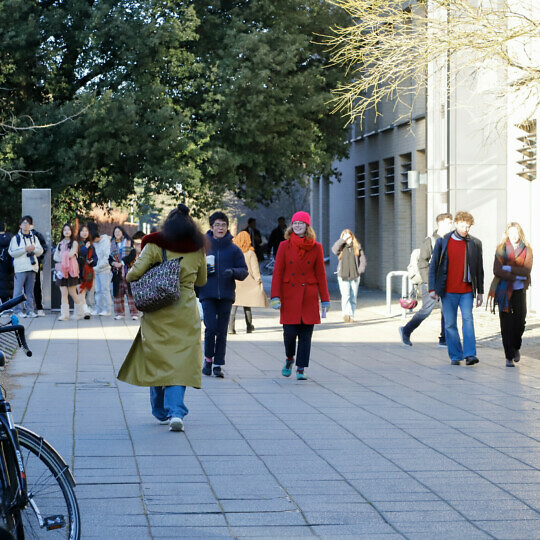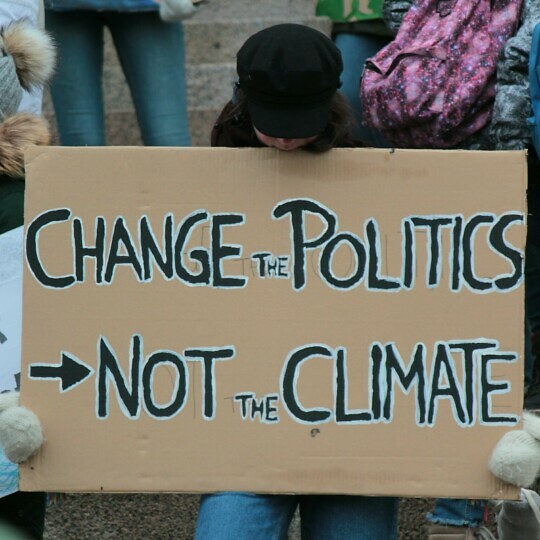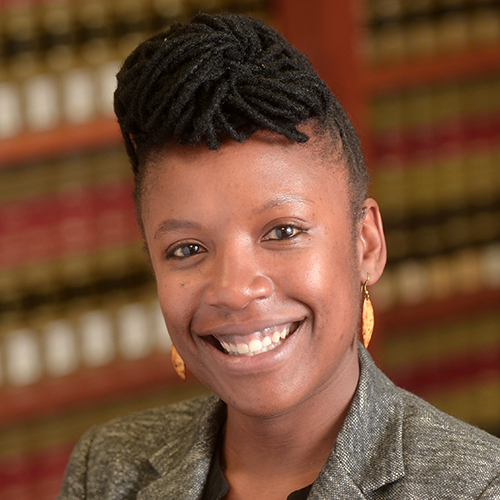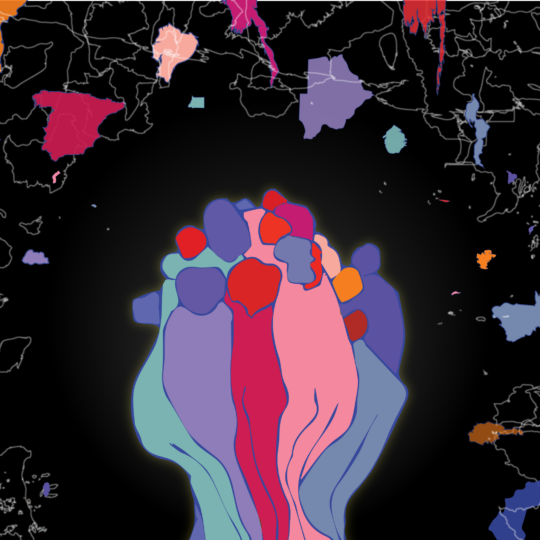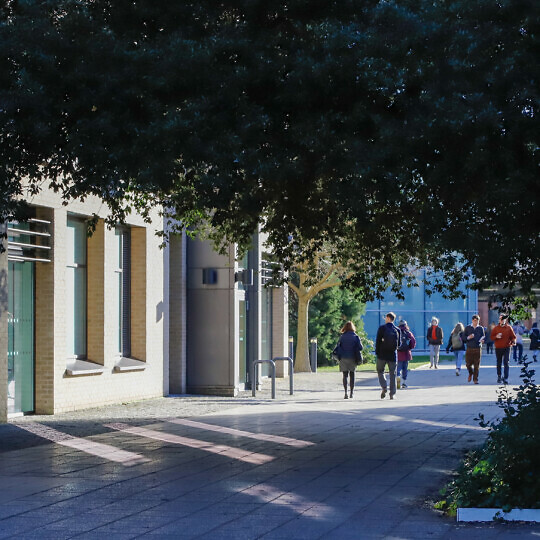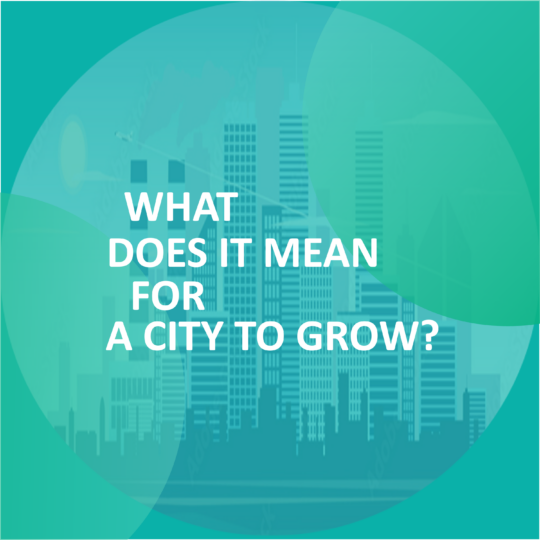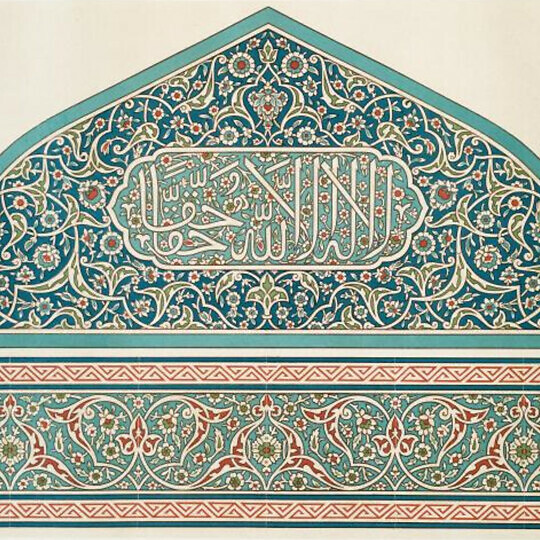| 18 Jan 2019 | All day | SG1 and SG2, Alison Richard Building | |
- Description
- Programme
- Abstracts
Description
Recordings from the conference are available here.
Convenor
Nabila Idris (University of Cambridge)
Summary
Despite being seeming political allies, there appears to be a fundamental tension between the proponents of increased migration and the proponents of a stronger welfare state. It arises due to the conundrum of eligibility: is eligibility for scarce state assistance mediated by citizenship or vulnerability? Regimes have oscillated between these positions, sometimes at the cost of their ideological integrity.
The practical implications of this conundrum today play out not just in the global North, although the recent migration crisis in Europe has thrown it in stark relief. The tension is also apparent in the global South where aid funding in countries like Uganda and Bangladesh is accused—at least in the popular imagination—of getting split between disadvantaged citizens and vulnerable refugees.
This one-day conference brings together students, academics and practitioners from both the global North and South in an attempt to tease out the politics of social protection. Is it really a ‘turf war’ between the citizens and the vulnerables? Or should we more critically interrogate the perception of scarcity itself? What political processes actually shape these decisions on the ground?
Sponsors

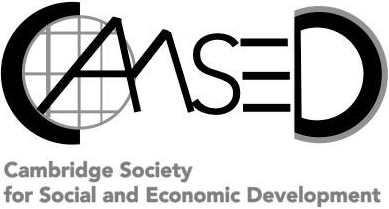
Supported by the Centre for Research in the Arts, Social Sciences and Humanities (CRASSH), and the Cambridge Society for Social and Economic Development (CAMSED).
Administrative assistance: events@crassh.cam.ac.uk
Unfortunately, we are unable to arrange or book accommodation for registrants. The following websites may be of help:
Programme
| 9.00 - 9.15 | Registration |
| 9.15 - 9.30 | Opening |
| 9.30 - 10.45 | Session 1: Framing Social Protection Zina Nimeh, Tamara A. Kool, Francesco Iacoella and Alexander Hunns (Maastricht University/UNU-MERIT) 'The Puzzle of Rights, Moral Obligations and Design: A Social Protection Framework for Protracted Refugees'
Samuel Hickey (University of Manchester) ‘From social contracts to political settlements? Getting real about the politics of social protection' |
| 10.45 - 11.15 | Break |
| 11.15 - 12.30 | Session 2: Developments in the Global North Toby Parsloe (University of Cambridge) 'The politics of refugee shelter placement and development in Berlin' Pietro Vulpiani (Ministry of Interior, Italy) 'Resettlement, demand for social welfare and secondary movements of Syrian refugees from Italy' |
| 12.30 - 13.30 | Lunch |
| 13.30 - 15.15 | Session 3: Shifting Lenses Albert van Wijngaarden (Novosibirsk State University) 'Speaking about refugee eligibility to scarce means in Bangladesh: From unwanted others, to suffering fellow human beings' Jad Moawad (University of Lausanne) 'A New Wave of Welfare Chauvinism? How Rising Immigration and Unemployment Level Affect Support for Distributing Welfare to Immigrants in Europe' Semanur Pekkendir (TRT World Research Centre) ‘”Ansar and Muhajirun” as a discursive device to shape public perception towards Syrian refugees' |
| 15.15 - 15.45 | Break |
| 15.45 - 17.30 | Session 4: Politics in the Global South Ilene van Brouwershaven (Maastricht University/UNU-MERIT) 'Finding a helping hand in a revolving door regime: A qualitative case-study about social protection for low-skilled foreign workers in Singapore'
Gbenga A. Shadare (University of Sheffield) 'The role of citizens’ perspectives in the transformation of social transfer programmes – examples of Nigeria'
Mohammed Ibrahim (University of Manchester) 'Do different types of social protection programmes shape citizenship and state capacity differently? Insights from Ghana' |
| 17.30 - 18.00 | Closing Discussion |
Abstracts
Ilene van Brouwershaven (Maastricht University/UNU-MERIT)
'Finding a helping hand in a revolving door regime: A qualitative case-study about social protection for low-skilled foreign workers in Singapore'
The access of migrant workers to social protection systems is becoming an increasingly important topic in the international policy domain. Many countries worldwide depend on foreign labour. Last year Singapore had approximately 965,200 low-skilled migrant workers or ‘work permit holders’ on its territory working as domestic workers, or in the country’s construction, manufacturing and services industries. This accumulates to about 70% of its total foreign workforce. However, this group of labour migrants, by law, does not have access to the country’s social protection system, the Central Provident Fund (CPF). This research evaluates what kind of channels this group of migrant workers uses to access social protection provisions in order to satisfy their needs and protect themselves against future risks. In order to do so it first looks at current legislation, both national and international, to get a clear picture of the entitlements that these labour migrants have to the nine branches of social protection as defined by the International Labour Organization (ILO).
In the subsequent section a theoretical framework, De Neubourg’s Welfare Pentagon, is applied to evaluate the five major institutions through which work permit holders’ access social protection: public authorities, markets, membership institutions, social networks and family. The findings discussed in this section are based on expert interviews, analysis of policy documents and build on previous research. This thesis concludes that, work permit holders do have access to health benefits, but face obstacles: entitlements are different than from what migrants get access to in practice. In addition, it is shown that non-governmental organizations (NGOs) and markets are the two elements of the Welfare Pentagon that are used most often by work permit holders, and that it is unlikely that this distribution will change in the near future.
Samuel Hickey (University of Manchester)
‘From social contracts to political settlements? Getting real about the politics of social protection'
Who gets social protection and on what basis is a fundamentally political choice that always involves questions of citizenship as well as of vulnerability. The adoption and implementation of social protection is increasingly understood to both reflect and to bring forth particular forms of politics and political projects, including new political subjectivities. How to understand this process and what it means for citizenship remains contested. For some, social protection has inherently normative origins and implications, deriving from the forging of new social contracts and ‘rightful claims’ that help instil rights-based and inclusive forms of citizenship. For others, social protection more commonly emerges from realist political projects that serve elite incentives and which are as likely to reinforce the politics of patronage as of citizenship. This paper discusses these competing perspectives with reference to recent comparative research into the politics of social protection in several countries within sub-Saharan Africa. It argues that whilst the current evidence is more strongly supportive of a realist rather than normative reading of the politics of social protection, it remains early days; in particular, further work is required to understand how the local politics of social protection is playing out in different types of context.
Mohammed Ibrahim (University of Manchester)
'Do different types of social protection programmes shape citizenship and state capacity differently? Insights from Ghana'
Recent discussions on the politics of social protection in the global South have largely focused on the political drivers of adoption and expansion. Although this emerging literature takes us beyond technocratic approaches that dominate research on poverty and vulnerability studies, they remain limited in terms of their ability to enhance our understanding of how social policy implementation elicits particular kinds of effects which in turn feed back into political processes. Drawing on lessons from the welfare literature, our research problematizes the causal link between politics and policy by arguing that even though politics and power relations may lead to the adoption of social protection policies and the distribution of rents that flow from them, the mechanisms and impact of such distribution may in turn influence the nature of social and political relations among relevant actors, and ultimately how future programmes are implemented.
Our work provides empirical evidence from Ghana to interrogate the proposition that different social protection programmes may lead to different social and political outcomes. We contribute to this research agenda by investigating how Ghana’s Livelihood Empowerment Against Poverty (a cash transfers programme targeted at the poor and vulnerable) and the National Health Insurance Scheme (a quasi-contributory/universal scheme open to the rich, poor and vulnerable) shape state capacity and citizenship. The two dominant political parties in Ghana have shown high-level of commitment to extending both means-tested and contributory/universal social protection services to a larger segment of the population. Our preliminary findings suggest that the implementation of the two programmes has built the capacity of the state to deliver public services through various interpretive and resource effects namely policy learning, territorial reach, bureaucratic competence and collaboration with non-state actors. However, with regard to citizenship, we find that apart from satisfying the resource needs of beneficiaries and transforming local-level relations, there is little evidence that these programmes have contributed to building a more active citizenry through greater political engagement. Nor do we find any marked difference in the extent to which beneficiaries of the two programmes are able to or (are disabled from) exercising voice on the quality of service delivery. With regard to LEAP beneficiaries, we find that this is largely due to the nature of programme framing and fear of reprisal. On the other hand, the nature of implementation of the NHIS has led to a dualism where instead of complementing the poor to mobilize around programme implementation, the rich/middle class resort to private or other sources of medical care.
Jad Moawad (University of Lausanne)
'A New Wave of Welfare Chauvinism? How Rising Immigration and Unemployment Level Affect Support for Distributing Welfare to Immigrants in Europe'
Does the growth in migration and unemployment matter for welfare chauvinism? While previous literature has explored the effect of these factors, this is, as far as I know, the first multilevel study to look at the growth of these variables following the Great Recession and the influx of immigrants to Europe after 2011. Moreover, it remains unclear at the individual-level whether the economic or the cultural dimension has more impact on anti-immigrant attitudes. Using the European Social Survey wave 8, the multilevel models reveal that neither a weak economic position nor the growth in unemployment can explain rising levels of welfare chauvinism. Instead, intolerance towards social diversity and the sudden increase in immigrants has influenced the rise of such attitudes.
Zina Nimeh, Tamara A. Kool, Francesco Iacoella and Alexander Hunns (Maastricht University/UNU-MERIT)
'The Puzzle of Rights, Moral Obligations and Design: A Social Protection Framework for Protracted Refugees'
Of the 25.4 million refugees in the world, the majority are left in a protracted refugee situation (UNHCR 2018); they are more than five years into their plight, with no prospect of a solution, living in limbo with often less than the bare minimum of protection. Despite the wide ratification of the 1952 Convention on the Status of Refugees, most refugees remain reliant on politically fungible compacts, assistance from international non-state actors – such as the WFP and UNHCR – and on the goodwill of host states.
Humanitarian assistance afforded to refugees by non-state actors is meant to be short-term and is generally not accompanied by long-term benefits or rights. The consequential long- term detrimental effects on capital accumulation ought to be recognised in both programme evaluation and academic work. Therein lies an opportunity for rights-based social protection as it is a strategic approach to reduce poverty and enhance resilience due the regular and predictable nature of its transfers. With the World Humanitarian Summit of 2016, the Social Protection Inter-Agency Coordination Board (SPIAC-B 2016) furthermore recognised the importance of strengthening the linkage between humanitarian aid and development through social protection.
While the language of transformative measures as envisioned under Devereux’s framework (2004) necessitates the inclusion of the various ethnic groups within a country, social protection provisions however remain within the citizenship realm. From a social justice perspective, the question thus arises for whom and to who, the government is accountable? Thomas Pogge (1989) and David Miller (2004) have sought to extend Rawls’ theory beyond the border of a nation and determine a State's responsibility to those beyond its border. It stands that there lies both a necessity and responsibility for the international community and host country to construct a social protection scheme that covers both refugees and citizens.
To come to a framework of social protection that covers both citizens and non-citizens such as forced migrants, multiple layers need to be considered, namely: 1) the moral and legal obligations under international and national regime, 2) the political economy of negotiation between the various actors involved, and 3) the potential for social protection shadowing as a way to bridge the humanitarian-development divide. Within this discussion elements pertaining to protection and funding mechanisms in different stages of displacement will be further analysed.
Toby Parsloe (University of Cambridge)
'The politics of refugee shelter placement and development in Berlin'
Since the so-called 'refugee crisis' of 2015, Europe has witnessed a ‘campisation’ of its refugee accommodation (Kreichauf, 2018). In Germany, the nation which famously welcomed over one million refugees, the affordable housing crisis has contributed to municipal governments creating camp-like structures in urban areas. In Berlin, 27,000 refugees now live in approximately 80 institutionalised structures as the city continues to open new long-term shelters. These are neither camps as normally understood, nor can they be considered as ‘real’ urban dwellings. Instead they are a type of imitation home: an ambiguous space wherein refugees supposedly choose to live but, in reality, have little choice. The process of selecting and building on sites has been fraught with issues and controversies, and in some cases met with significant local resistance. Consequently, the authorities have found it exceptionally difficult to establish and operate some of these sites.
This paper examines the socio-politics of Berlin’s placement and development of Berlin’s emerging long-term shelters. It argues that the proliferation of the sites around the city is a fundamentally political issue, shaped by broader political agendas as well as local social and economic pressures. It explores the factors that have influenced where the shelters are designated to be, as well as the implications for refugees and local citizens once the shelter is built. The ‘citizen’ must be treated as a diverse group which has different reactions to the presence of refugee shelter in different areas. To show this, the paper focuses on shelters in two very different districts of Berlin: Marzahn-Hellersdorf in the former East Berlin, and Steglitz-Zehlendorf in the former West. They provide insights into the reactions of citizens on both ends of the socio-economic spectrum. It is revealed that different citizens in particular areas have different tools, mechanisms, and prerogatives to resist or support refugees in the nearby shelters. This will ultimately influence the success or failure of a refugee population to incorporate itself into the existing dynamics of the city.
Semanur Pekkendir (TRT World Research Centre)
‘”Ansar and Muhajirun” as a discursive device to shape public perception towards Syrian refugees'
Today, Turkey is facing the biggest refugee crisis in its contemporary history. The public perception in Turkey vis-a-vis Syrian refugees has become increasingly negative in the light of the rising number of Syrian refugees and the protraction of the war in Syria. In order to put a positive spin on the image of migrants in society, the Turkish government has started identifying Syrian refugees as 'Muhajirun'. This is a historical term that refers to the early followers of the Prophet of Islam, who migrated from Mecca. On the other hand, the people of Medina who embraced Islam were called the Ansar. The government readily utilises this discursive device, which is based on shared religion and culture, to win the battle for public opinion.
This paper aims to provide a discursive analysis of the role of identity amidst the Syrian refugee crisis in Turkey. In this regard, the relationship between identity and migration management will be carefully examined. To this end, this research will scrutinise the specific identity markers that are used, and by the same token, identify which refugees and immigrants are recognised as familiar ('one of us') and which ones represent the others ('them').
Therefore, the methodology of this research focuses on the statements made by Recep Tayyip Erdogan, the former Prime Minister (2002-2014) and the President of the Turkish Republic since 2014. The rationale behind this choice is that Erdogan's speeches are representative of the establishment's view in Turkey. As an elected politician for 16 successive years, he can be considered as a determining factor in shaping the government's positions and actions towards the Syrian crisis.
Hence, Erdogan's speeches are crucial to build a clear understanding of the perception management towards the Syrian refugees. The narrative of 'Ansar and Muhajirun' will be examined as a discourse that marks the religious commonality between two nations. In doing so, the research aspires to uncover the linkage between the commonalities, conveyed in Erdogan's speeches, and the construction of a collective identity that involves both Turkish nationals and Syrians.
Gbenga A. Shadare (University of Sheffield)
'The role of citizens’ perspectives in the transformation of social transfer programmes – examples of Nigeria'
In the debates on political settlements framework, the role, power and influence of the citizens, is often taken for granted. The question remains: who should have the deciding, ultimate and influential vote (decision, power) in designing (developing) and implementing (delivering) social transfer programmes for citizens? Conventional wisdom will dictate that government or the elites (whose interests are critical in maintaining the status quo) should be the ultimate decider. However, experience in developing countries is proving that with the elites tasked with making decisions on social protection programmes like conditional or unconditional cash transfers, other factors come into play. This paper will critically examine the process of designing social protection programmes and investigate the various factors that can influence the policymaking decision by the government. In making a case for the often ignored aspect of citizens' perceptions and views, this paper significantly contributes to the debate of political settlements, social contract (state-citizen) contract and the importance of politics in the design, delivery and implementation of social protection programmes in developing countries.
Pietro Vulpiani (Ministry of Interior, Italy)
'Resettlement, demand for social welfare and secondary movements of Syrian refugees from Italy'
In the last years, migratory pressures on the central and Eastern Mediterranean route has displaced millions of Syrian refugees to Europe. Tackling smuggling and tracking of migrants, 17 EU Member States and Norway have in place resettlement and humanitarian admission programmes. Resettlement is one of the legal pathways and one of the main long-term solutions for refugees that can be transferred from a country of first refugee in which they have sought protection to a country willing to admit them as a refugee with permanent residence status. Moreover, Member States have different approaches and rules regarding resettlement procedures, stakeholders involved, geographical distribution of beneficiaries and welfare appeal: accommodation solutions, integration measures and employment opportunities vary among countries. Currently, from Portugal, Spain and Italy, secondary movements show how a relevant number of resettled Syrians move quickly to other Northern European countries (mainly Germany and Scandinavian countries) in search of better welfare opportunities.
In my paper I will present the results of research focused on the actual expectations and aspiration of resettled Syrians, and their level of satisfaction / frustration / integration in Italy. My analysis will show how the discrepancy between the pre-arrival attitude and expectation to resettlement and the actual welfare and employment opportunities offered by the resettled country can reinforce the aspiration to secondary movements towards other countries. A deconstruction of institutional and non-profit narratives will help to understand how the image of the deserving refugee addresses integration funding without taking into account the actual integration needs and expectations of resettled people.
The research is of particular interest considering the new political will of the European Union to move towards a Union Resettlement Framework that will formalize from 2019 annual resettlement pledges of third country nationals to the Member States. With interviews of around 200 Syrians resettled in Italy and tens of social workers of reception centres, as well as with selection missions in Turkey and Jordan, I verified the huge gap between the UNHCR interview of beneficiaries for resettlement and the actual attitude to resettlement of several beneficiaries. I registered the relevant number of beneficiaries that withdraw their application when selected for resettlement in Italy, deciding to not move anymore to Europe. At the same time, I reported the high dissatisfaction and frustration of resettled Syrians and the discrepancies between their aspiration and expectations and the actual daily life in Italy. The contrast emerging by my interviews is the big gap between institutional aspiration to protect and concrete wellness requests of beneficiaries of resettlement, dreaming for the stronger welfare systems of Northern European countries.
Albert van Wijngaarden (Novosibirsk State University)
'Speaking about refugee eligibility to scarce means in Bangladesh: From unwanted others, to suffering fellow human beings'
This paper examines the semantic shift that occurred in Bangladeshi Prime Minister Sheikh Hasina’s language towards Rohingya refugees around August 2017, when the worst recent escalation of violence in Myanmar caused a mass exodus of Rohingya to neighbouring Bangladesh. Up until that point, Hasina had been very much against a ‘Wilkommenskultur’ towards refugees, amongst other reasons pointing towards the incapability of Bangladesh to bear the burden since her country was already poor and severely overpopulated. However, as the crisis in Myanmar deepened and escalated in August 2017, and the international media started to follow the events closely, Hasina changed her language in a significant manner. In a matter of weeks, the Rohingya changed from being the unwanted 'others' that could not be cared for in an already severely overpopulated poor country, to being fellow human beings that were entitled to aid, even if this meant Bangladeshis would have to make great sacrifices for it.
By explaining the political reasons that lay behind this shift, this paper offers valuable insights for debates on the way multiple seemingly unrelated political interests can shape debates on eligibility to social protection and welfare. It will furthermore reveal the key role discourse plays in shaping national and especially international opinions on these matters, not only explaining how slight changes in words almost instantly qualified or disqualified the Rohingya for eligibility to aid, but also showing how easily world leaders (and even the Pope) succumbed to the power of words. Moreover, by providing an example of the politics behind the struggle for eligibility to scarce means in the global South, this paper can show how politics of social protection play out differently in this part of the world, as opposed to in the global North. This paper will lastly also show how, despite a revaluation of the basic rights of Rohingya refugees in Bangladesh, they are still described as 'other', and that there is therefore also still a very clear line between 'citizens' and the 'vulnerable'. Thereby the door is kept wide open for a future rebalancing of the scales in questions of eligibility to social welfare. This is essential when we think about durable future solutions in this case, and for similar situations around the world.


